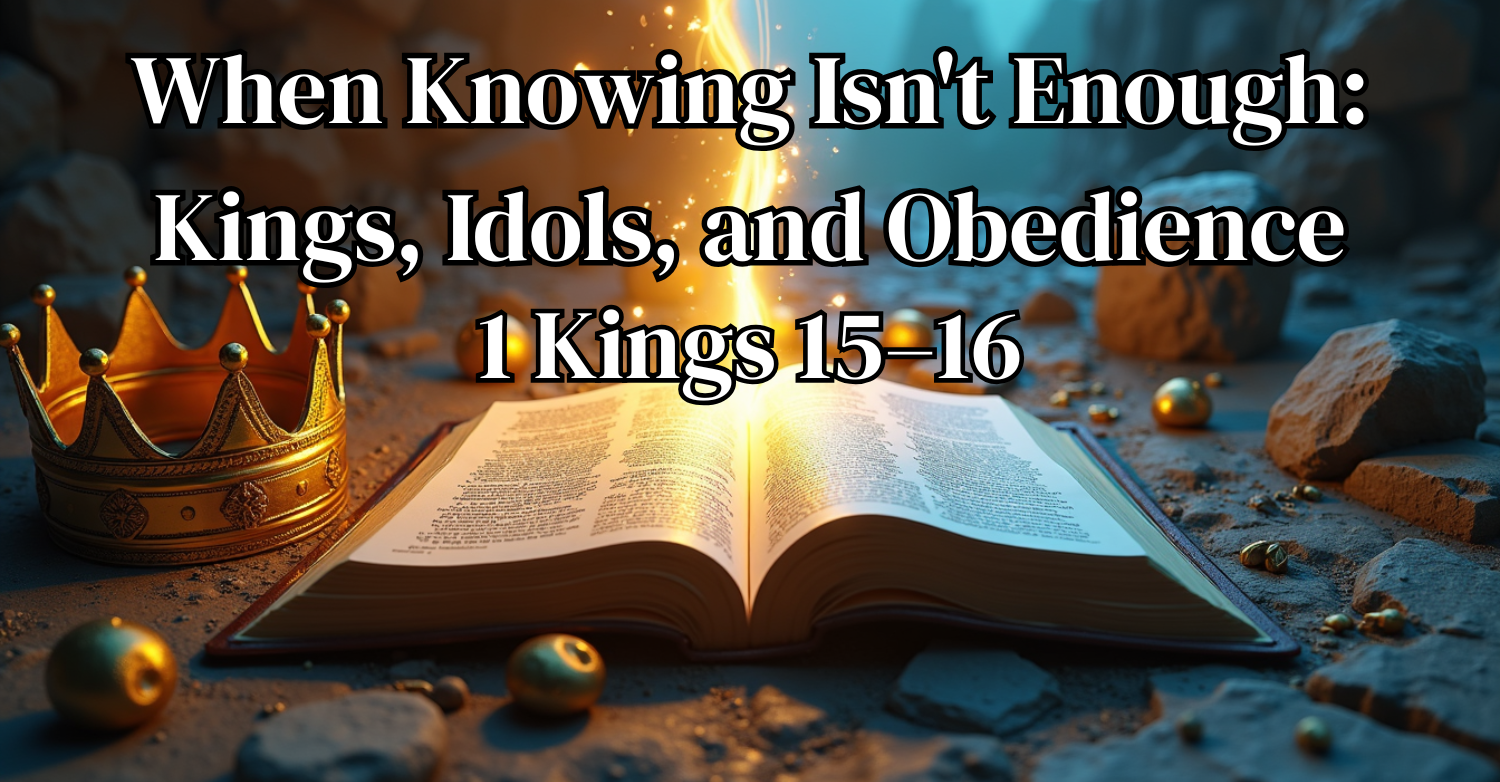When Knowing Isn't Enough: Kings, Idols, and Obedience

When Knowing Isn’t Enough
Have you ever known the right thing to do, but ignored it anyway? Maybe it was a health warning, a financial red flag, or even God’s gentle nudge in your heart. That tension—knowing but not doing—is at the center of one of the darkest chapters in Israel’s history.
In 1 Kings 15–16, king after king is remembered by one chilling phrase:
“He did evil in the sight of the Lord.”
These leaders weren’t ignorant of God’s ways. They knew His laws, they knew His blessings, and they knew His wrath. Yet they chose to ignore Him. Their story isn’t just ancient history—it’s a mirror for us today.
They Knew God’s Wrath
The kings of Israel and Judah grew up with God’s story all around them: the Exodus, the Ten Commandments, David’s victories, and Solomon’s temple. They had prophets like Jehu and Elijah standing in their courts, speaking God’s warnings loud and clear.
Knowledge wasn’t the issue. The problem was their hearts.
They Ignored God’s Warnings
So why did they turn away?
-
Power over obedience: They trusted alliances and armies instead of God.
-
Idolatry: Golden calves and Baal worship became their false security.
-
Hardened hearts: Repeated sin dulled their fear of God.
-
Mistaking patience for approval: Because judgment didn’t fall instantly, they thought they were safe.
And just like that, one by one, dynasties fell.
They Fell Under Judgment
The northern kingdom became a revolving door of assassination, conspiracy, and idolatry. Dynasties ended violently. Palaces burned. A once-great nation crumbled.
God’s patience had a limit. And when leaders ignored His ways, the entire nation suffered.
Modern Application: Our Idols Today
Before we shake our heads at those kings, let’s ask: What about us?
-
Money – when security in a bank account replaces trust in God.
-
Comfort – when ease matters more than obedience.
-
Politics – when we put more hope in governments than in God’s kingdom.
-
Approval – when people’s opinions weigh more than God’s truth.
Leadership today isn’t just about kings—it’s about influence. Parents, teachers, and Christians in community all lead someone. Our choices ripple outward.
We face the same question: Will we follow culture’s idols, or God’s call to faithfulness?
Faithfulness, Not Perfection
The good news is, God isn’t asking us to be flawless. Look at King Asa—he wasn’t perfect, but he tore down idols and sought the Lord. God honored his faithfulness, not his perfection.
That’s the invitation for us today.
Closing Challenge
The story of the kings is a mirror. It asks us: Whose example will you follow—Jeroboam and Ahab, or Asa?
This week, don’t just know what’s right—live it. Remove one idol from your life that’s competing with God, and choose faithfulness instead.
Prayer
“Heavenly Father, forgive us for the times we’ve ignored Your warnings and chased after idols. Help us not to strive for perfection, but for faithfulness. Give us the courage to tear down the idols in our lives and lead others toward You. May our lives reflect Your truth and love. In Jesus’ name, Amen.”
Takeaway: The kings were evil not because they didn’t know God, but because they ignored Him. Knowledge without obedience leads to destruction. But faithfulness—even imperfect faithfulness—brings life.



